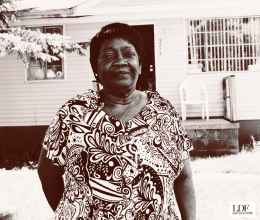
With the fate Michigan’s medical marijuana law hanging in the balance, the American Civil Liberties Union of Michigan appeared before the state Supreme Court today to argue that the City of Wyoming’s ordinance banning medical marijuana should be struck down because it is in direct violation of the Michigan Medical Marihuana Act.
“This case has far-reaching implications for our state and those who believe patients should be protected,” said Daniel S. Korobkin, ACLU of Michigan staff attorney. “Our goal is to ensure that thousands of sick patients continue to have access to the pain relief they need. If the city of Wyoming succeeds in its attempt to ban all use of medical marijuana, patients and their caregivers throughout the state will be put in jeopardy.”
The lawsuit was originally filed in November 2010 by John Ter Beek, a medical marijuana patient who fears being penalized by local officials if he grows or uses medical marijuana in compliance with state law because the City of Wyoming’s zoning ordinance completely bans any medical marijuana use or cultivation within city limits by prohibiting “uses contrary to federal law, state law, or local ordinance…”
Because medical marijuana is still technically illegal under federal law, the city used this terminology to ban medical marijuana. The federal government, however, has a policy of not prosecuting patients and caregivers who comply with their states' medical marijuana laws, and the Michigan Medical Marihuana Act specifically states that registered patients and their caregivers "shall not be subject to arrest, prosecution, or penalty in any manner" for growing, possessing, or using medical marijuana.
“Local laws such as Wyoming’s, which are a clear attempt to circumvent the state Medical Marihuana Act approved by voters in 2008, lead to an unmanageable patchwork of ordinances that deprive patients and caregivers of their rights,” said Korobkin. “We are confident that the Supreme Court will deny local attempts to gut the medical marijuana law and will instead uphold the rights of patients and caregivers who have done nothing wrong, but are treated like criminals by local officials.”
In August 2012, a panel of judges on the state appeals court unanimously declared Wyoming’s ordinance “void and unenforceable.” In addition to Michigan, there are 19 states and the District of Columbia that have state laws protecting the rights of medical marijuana patients.
“The fact is medical marijuana helps people; it’s helped me,” said Ter Beek, a retired attorney who suffers from diabetes and a neurological disorder that causes neuropathy and severe pain. “I’ve tried narcotic-based drugs like Vicodin and OxyContin and nothing worked like medical marijuana. I have more freedom than ever before and I couldn’t just sit by as our elected officials try to take that away from me and thousands of others.”
Just 5 days before Wyoming adopted its ordinance, the ACLU of Michigan filed a similar lawsuit against the cities of Birmingham, Bloomfield Hills and Livonia. The ACLU sent a copy of that lawsuit to Wyoming city officials prior to their vote. Both lawsuits ask that the city ordinances be declared invalid and unenforceable against medical marijuana patients and caregivers who comply with the state law. The lawsuit against Birmingham is on hold pending the outcome of this case.
In addition to Korobkin, Ter Beek is represented by Michael J. Steinberg, Kary L. Moss, Miriam Aukerman and Mike Nelson of the ACLU of Michigan.
